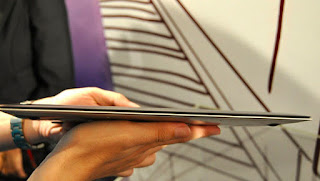If you missed the part 1, here you can take a look.
8. Leave the laptop in the car: Thieves have plenty of time to study how to approach on you, or the simplest case when they see an easy opportunity right in front of them. If something attracts their attention in the car, or more, if they see you carrying a backpack or suitcase and moving to the trunk of the car, it will be easy to them to break the window, in seconds take your laptop and your information became legend. So if you really need to leave in the car, try to put under the seat, in discrete location, but better than this, take with you.
9. Not having a "disposable" e-mail: Dont give your main email to anyone or questionable websites when filling the form. You can easily start receiving tons of spam e-mails with this simple attitude!! So take advantage of the free emails such as Gmail or Yahoo and preserve your main inbox.
10. Keep all your e-mails: If you are the one who keeps all received email in the inbox in a chronological order ... congratulations!! But sorry to say that, it will be pretty hard to find something when you most need. Try to use folders and tags in order to classify by category such as work, personal, important ones, etc. Also delete the ones you wont use anymore.
11. Not learn the shot-cuts of the keyboard: Still there are many people that dont know how to use the Ctrl+C and Ctrl+V. Those are the most common ones, and there are lots of those that makes easier your life. No need to learn all combinations, but it can help you save a lot of time with a simple Ctrl+S, for example.
12. Install too many things: You install a few messenger, other tool bars, and some programs. When you initiate your computer and after everything is loaded, you notice your computer slow. This is because programs usually let many logs and other stuff behind, making your computer keep loaded all this things. So when you want to install new stuff, think twice if you really need it. Of course, there are some software that can clean up your computer, or another way is format and re-install everything ... but this takes lots of your time in order to do it and can give you possibly a cost.
13. Store files anywhere: This is one of the most common problems people complain when working with computer ... "I swear I have saved the file but I dont know where!!". I bet this already happened to you. So in order to avoid this kind of boredom, try to organize your files using folders splitting by subject or category. Once you need to look for it, you have an idea where it might be. Act as you do with other stuff such as, the newspaper and magazines, the monthly bills, the photo albums, etc.
14. Use the same password for everything: You first think that if you put the same password for everything you need, it is easier to remember, because it is just one. However, imagine if one of those places you created the password they don't store encrypted and worse, this information is stolen somehow. The thief can have your name and password and can access your e-mail, social networks, perhaps bank account, whatever. Better have a set of different passwords for different purposes and with critical levels, not only that, keep it safe, not have written anywhere or shared with other people.
Well, surely there are many other important hints that can protect yourself of headaches. But following some of those ones, you can make your productivity even better, possibly not right away but in the long run.
